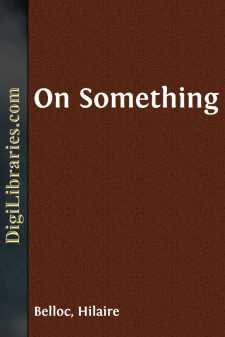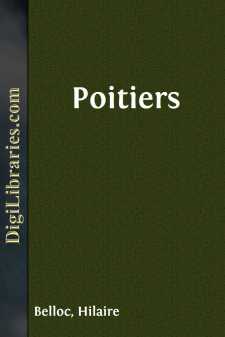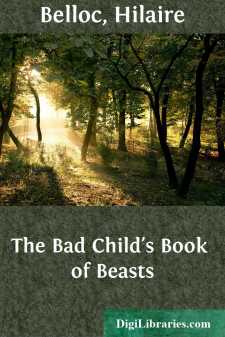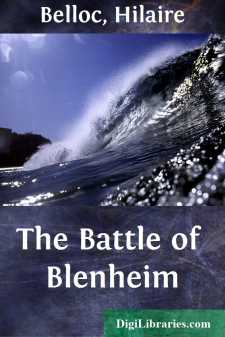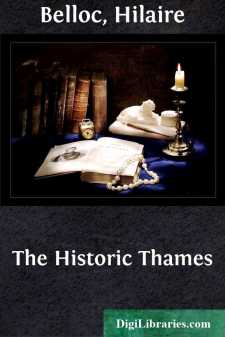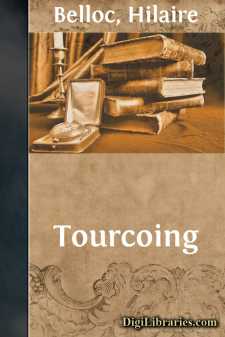Categories
- Antiques & Collectibles 13
- Architecture 36
- Art 48
- Bibles 22
- Biography & Autobiography 813
- Body, Mind & Spirit 142
- Business & Economics 28
- Children's Books 13
- Children's Fiction 10
- Computers 4
- Cooking 94
- Crafts & Hobbies 4
- Drama 346
- Education 46
- Family & Relationships 57
- Fiction 11828
- Games 19
- Gardening 17
- Health & Fitness 34
- History 1377
- House & Home 1
- Humor 147
- Juvenile Fiction 1873
- Juvenile Nonfiction 202
- Language Arts & Disciplines 88
- Law 16
- Literary Collections 686
- Literary Criticism 179
- Mathematics 13
- Medical 41
- Music 40
- Nature 179
- Non-Classifiable 1768
- Performing Arts 7
- Periodicals 1453
- Philosophy 64
- Photography 2
- Poetry 896
- Political Science 203
- Psychology 42
- Reference 154
- Religion 513
- Science 126
- Self-Help 84
- Social Science 81
- Sports & Recreation 34
- Study Aids 3
- Technology & Engineering 59
- Transportation 23
- Travel 463
- True Crime 29
Sort by:
by:
Hilaire Belloc
A PLEA FOR THE SIMPLER DRAMA It is with the drama as with plastic art and many other things: the plain man feels that he has a right to put in his word, but he is rather afraid that the art is beyond him, and he is frightened by technicalities. After all, these things are made for the plain man; his applause, in the long run and duly tested by time, is the main reward of the dramatist as of the painter...
more...
by:
Hilaire Belloc
INTRODUCTION The Battle of Poitiers was fought ten years and four weeks after that of Crécy. The singular similarity between the two actions will be pointed out upon a later page. For the moment it must suffice to point out that Poitiers and Crécy form unique historical parallels, distinguishing like double summits the English successes of Edward III.’s army upon the Continent and of the first part...
more...
by:
Hilaire Belloc
INTRODUCTIONI callyou bad, my little child,Upon the title page,Because a manner rude and wildIs common at your age. The Moral of this priceless work(If rightly understood)Will make you—from a little Turk—Unnaturally good. Do not as evil children do,Who on the slightest groundsWill imitatethe Kangaroo,With wild unmeaning bounds: Do not as children badly bred,Who eat like little Hogs,And when they...
more...
by:
Hilaire Belloc
PART I THE POLITICAL OBJECTIVE The proper understanding of a battle and of its historical significance is only possible in connection with the campaign of which it forms a part; and the campaign can only be understood when we know the political object which it was designed to serve. A battle is no more than an incident in a campaign. However decisive in its immediate result upon the field, its value to...
more...
by:
Hilaire Belloc
I About two hundred years ago a number of things began to appear in Europe which were the fruit of the Renaissance and of the Reformation combined: Two warring twins. These things appeared first of all in England, because England was the only province of Europe wherein the old Latin tradition ran side by side with the novel effects of protestantism. But for England the great schism and heresy of the...
more...
by:
Hilaire Belloc
THE HISTORIC THAMES England has been built up upon the framework of her rivers, and, in that pattern, the principal line has been the line of the Thames. Partly because it was the main highway of Southern England, partly because it looked eastward towards the Continent from which the national life has been drawn, partly because it was better served by the tide than any other channel, but mainly because...
more...
by:
Hilaire Belloc
PRAISE OF THIS BOOK To every honest reader that may purchase, hire, or receive this book, and to the reviewers also (to whom it is of triple profit), greeting--and whatever else can be had for nothing. If you should ask how this book came to be written, it was in this way. One day as I was wandering over the world I came upon the valley where I was born, and stopping there a moment to speak with them...
more...
by:
Hilaire Belloc
PART I THE POLITICAL CIRCUMSTANCE The Battle of Tourcoing is one of those actions upon which European history in general is somewhat confused, and English history, in particular, ignorant. That British troops formed part of those who suffered defeat, and that a British commander, the Duke of York, was the chief figure in the reverse, affords no explanation; for the almost exactly parallel case of...
more...
by:
Hilaire Belloc
THE POLITICAL OBJECT AND EFFECT OF THE WATERLOO CAMPAIGN It must continually be insisted upon in military history, that general actions, however decisive, are but the functions of campaigns; and that campaigns, in their turn, are but the functions of the political energies of the governments whose armies are engaged. The object of a campaign is invariably a political object, and all its military effort...
more...


